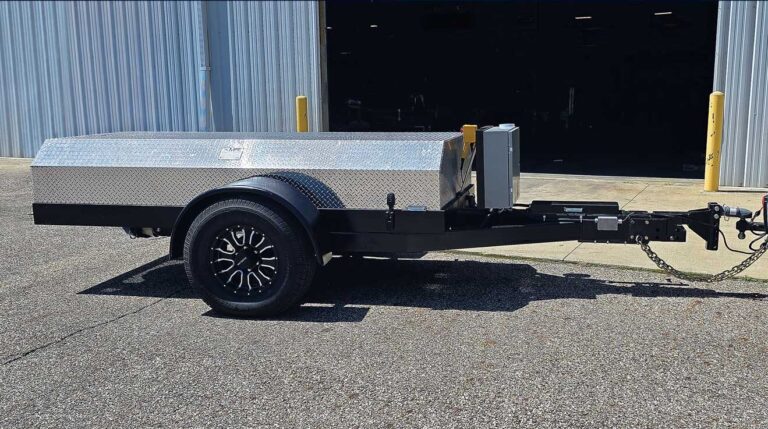Kubota Tractor, an agricultural and utility vehicle manufacturer, has partnered with Mustang Advanced Engineering (MAE) to enhance the research and development capabilities of its consumer-level utility terrain vehicles (UTVs) and powersport recreational vehicles. The primary goal was to develop a high-performance, lightweight tow dynamometer tailored for comprehensive R&D testing.
Kubota sought a portable and efficient dynamometer that could accurately simulate real-world towing loads for UTVs and recreational vehicles, without the burden of excessive size or weight. The system needed to maintain high accuracy, durability and mobility to be integrated effectively into the company’s testing environment.
In response, MAE engineered the MDT-8KN-UL, a lightweight tow dynamometer, designed to meet the performance and portability requirements of Kubota’s engineering team.
Key design elements include a reduced weight frame and housing, making it 1,000 lb lighter than MAE’s standard model MDT-8KN Tow Dyno. It offers a minimum speed of 1.0mph (1.5km/h) and a maximum speed of 60mph (100km/h), and can provide grade simulation up to 80% for a vehicle weighing 4,200 lb (1,900kg). Data acquisition systems enable engineers to capture and analyze vehicle performance under load in real time.
Available control modes included Manual Control, Constant Force (Draw Bar), Constant Speed, Constant Power and Vehicle Simulation (A, Bv, Cv2, weight, grade). Another key feature of the MDT-8KN-UL tow dyno is script testing, which enables the operator to create unique test cycles based on time or distance. The operator can easily configure the software to change between control modes while the tow dynamometer is executing the test cycle.
Other features include turnkey installation, automated sear shifting, metered transmission oil system and fully automated test-out sequence.
The delivered tow dynamometer has significantly improved Kubota’s R&D capabilities by enhancing the precision of performance testing for UTVs and recreational vehicles, enabling realistic, field-simulated testing in a controlled environment and providing a cost-effective and scalable solution for future product development.


